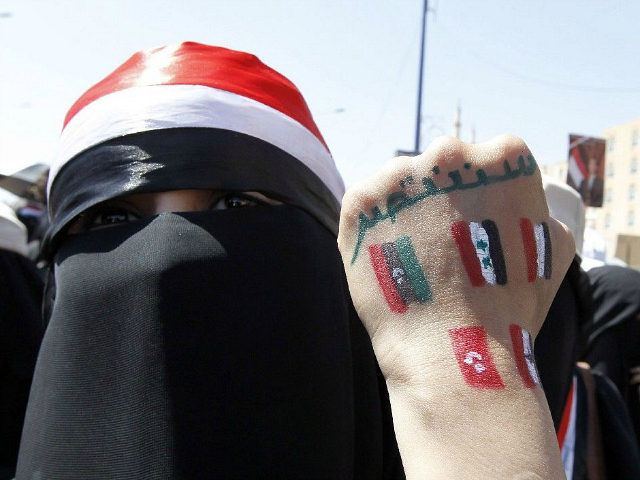The United Nations Economic and Social Commission for Western Asia (ESCWA) has concluded that the 2011 “Arab Spring” uprisings cost the affected countries a total of $614 billion, amounting to 6 percent of their combined Gross Domestic Product.
As Reuters explains, the organization arrived at that figure by totaling the costs of “regime change, continuing conflict, and falling oil prices.” They computed 6 percent GDP loss by comparing the current status of Middle Eastern nations with growth projections made before 2011.
The U.N. agency forthrightly admits that Syria accounts for a large share of the economic damage, having lost at least $259 billion against projections, and also that estimating what oil prices might have been without the Arab Spring unrest is difficult.
On the matter of the oil price crash, ESCWA Economic Development director Mohamed el Moctar Mohamed el Hacene expressed hope that oil nations would “put in place economic reforms leading to real diversification,” having learned their lesson about depending too heavily upon petrodollars. (Saudi Arabia is making a very high-profile effort to do just that.)
Economics is all about cost/benefit analysis, but The Washington Post finds little in ESCWA’s work to suggest the benefits were worth it:
Political transitions in the Arab world have not largely not helped economic growth, the report finds, in part because there have not been reforms that addressed the issues that led to the Arab Spring unrest.
The conflicts have also had huge social implications, including large-scale population displacement and rising unemployment in countries that underwent conflict or those that have received refugees because of conflicts in neighboring countries. The situation is especially difficult for women, who tend to participate in the labor market at a far lesser extent than men in Arab countries.
The WaPo also notes that “corruption is actually perceived to have increased in many Arab countries over the past five years,” which is an especially bitter irony because the Arab Spring began in Tunisia with a dramatic act of protest against corruption and the abuse of power.

COMMENTS
Please let us know if you're having issues with commenting.